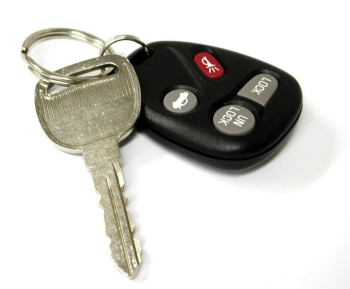
By NICK CHILES
The state of New Jersey is currently debating a bill that would create “graduated licenses” for teenagers, which add more safeguards and restrictions to the process of acquiring a license for 16-year-old drivers. While there is some opposition in New Jersey, these measures have been passed in many other states around the country, including Georgia, where I live, and let me tell you, they make a huge difference for parents. I am an unequivocal supporter of anything that makes teenagers more cautious and conscientious when they get behind the wheel.
First of all, you can’t argue with the statistics. A story in the New York Times, quoting numbers provided by the New Jersey Teen Safe Driving Coalition, says that with teenage drivers, a single passenger raises the risk of a crash by 50 percent and doubles the risk of a driver dying in a crash; three passengers increase the risk of a crash by 200 percent. Most graduated license laws, such as the one we have here in Georgia, prohibit 16-year-olds from driving with another teenager in the car for at least six months. In the second six months after they get the license, teens can’t have more than one other teen in the car. A year after the license, teens still aren’t supposed to have more than three other teens in the car.
Some may argue that it’s close to impossible for the police department to manage these restrictions, that most teens are going to get away with breaking these laws with impunity. That may be true, but the graduated license is more about the parents than the police.
Indeed, according to the New Jersey Teen Safe Driving Coalition, teenagers whose parents set rules and monitor their independent driving are half as likely to get into a crash as teenagers with no parental supervision—and they’re 71 percent less likely to drive while intoxicated and 50 percent more likely to use their seat belts. States that have adapted graduated license requirements have seen their crash rates for teenagers drop by 10 to 30 percent.
For the parent of a teen, there aren’t many things as frightening and disconcerting as letting your teenager out on the road by himself. As I’ve written about here before, it’s a relinquishing of the last bit of control a parent has. And every suburban community is rocked every year or two by yet another tragic story of teenagers dying behind the wheel—often because they were doing something reckless or stupid or they weren’t paying attention. It’s bad enough if you have a disciplined, well-behaved child—if you happen to be the parent of a bad ass, you spend a lot of time talking to Jesus. The insurance industry recognizes the risk involved by practically making you take out a second mortgage on your house in order to pay for the rates to insure a teen driver. And, as I know well, boys cost more than girls to insure. As a matter of fact, even our homeowners insurance agent got involved—when she found out we had a male teen driver in the house, she recommended we take out an “umbrella” policy to protect our house and belongings in case our teen was the cause of some tragedy on the road.
For me, the graduated license law was a godsend because it gave me the backing of the legal system when I fought with my son about riding around with his boys. I knew that a car full of knuckleheads was bad news all around—now I could say that he was breaking the law every time he did it. I’m sure he didn’t obey me or the law 100 percent of the time, but I’m also sure he had a bad feeling in the pit of his gut every time he let another teen pile in his car. That bad feeling is what a parent lives for, what makes all those years of arguing and punishment well worth the stress and strife. That bad feeling is the physical manifestation of your voice in your child’s ear. And when that bad feeling comes and gives your child pause, it will sometimes push him to make the right decision. Not every time, mind you, but sometimes.
I thought I could rest a bit easier when the boy went off to college. He didn’t have a car with him and didn’t need one on his school’s small Pennsylvania campus. But he’s a sophomore now and he’s making plans to bring his car back to campus with him in a few weeks.
Once again, let the worrying begin.
RELATED POSTS:
1. Teenage Care Traumas: A Dad Loses Control
2. Proof That the Boy Was Listening to the Friendship Lecture: Introducing Chad and Eddie
3. Invasion of the Personality Snatchers—Or, Hurry, the Teenager is Here
4. Teenage Wasteland: When Your Child Gets the Pink Slip, We ALL Pay
Denene Millner
Mom. NY Times bestselling author. Pop culture ninja. Unapologetic lover of shoes, bacon and babies. Nice with the verbs. Founder of the top black parenting website, MyBrownBaby.
- Web |
- More Posts

